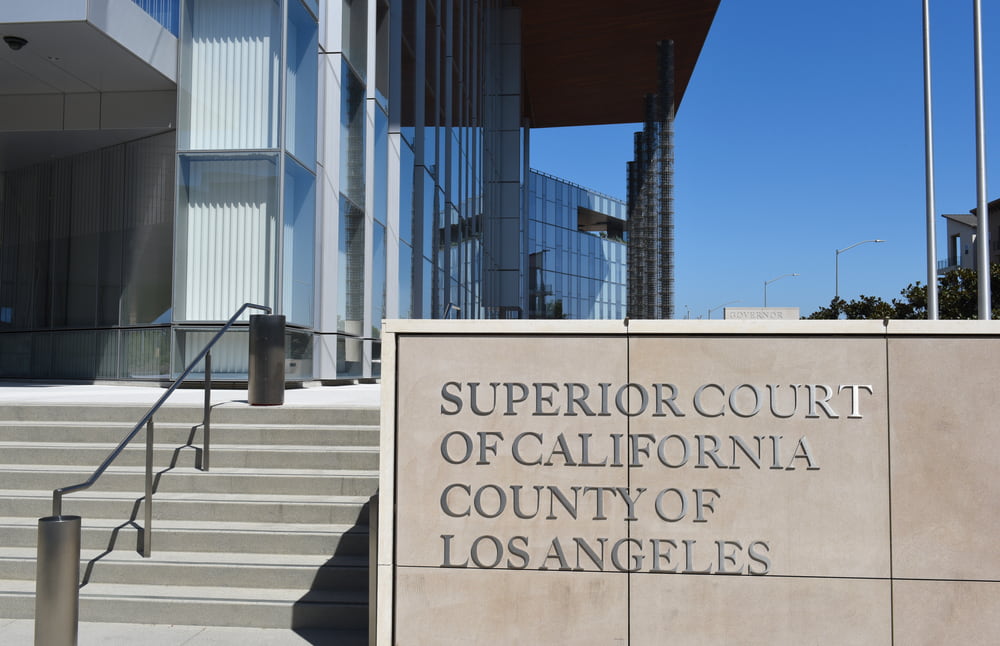Los Angeles Sex Offender Registration Laws

Los Angeles Sex Offender Registration Laws KEY POINTS
- Sex Offender Registration: California requires registration for certain sex crimes, categorized into three tiers based on the severity of the offense.
- SB 384 Changes: Since January 1, 2021, many sex offenders can petition for removal from the registry after 10 to 20 years if they meet specific criteria.
- Tier System: Tier One – Requires registration for 10 years (low-level misdemeanors). Tier Two – Requires registration for 20 years (moderate-to-serious offenses). Tier Three – Requires lifetime registration (serious offenses, often involving violence or minors).
- Mandatory vs. Discretionary Registration: Some crimes require mandatory registration, while others leave it to the judge’s discretion.
- Failure to Register: Not registering as required is a serious crime with harsh penalties.
- Certificates and Pardons: A Certificate of Rehabilitation can help with employment and housing, and a Governor’s Pardon can remove the requirement to register.
Are you looking to get your name off of California’s sex offender registry? Recent changes to the state’s laws may allow you to get your name off of the registry list, depending on your circumstances.
A conviction of a sex crime requiring you to register as a sex offender is life-changing and can be devastating to a defendant, as well as family members they share a home with.
There are about two dozen crimes that, if convicted, could require you to register as a sex offender.
According to the California Department of Corrections and Rehabilitation, less than 2% of registered sex offenders commit another sex crime.
If you are eligible to get off the sex offender registration list, the Los Angeles sex crimes attorneys at The Rodriguez Law Group Los Angeles Criminal Defense Attorneys are here to help you. Contact our law office to arrange a time to discuss your legal options today.
Quick Navigation Menu
- How a Los Angeles Sex Offender Registration Lawyer Can Help Get Your Name Off a Sex Offender Registry
- Sex Offender Registration in California – and SB 384’s 2021 Changes
- Mandatory Restrictions For Those Required To Register As A Sex Offender in LA
- Obtaining a Certificate of Rehabilitation or a Governor’s Pardon in Los Angeles
How a Los Angeles Sex Offender Registration Lawyer Can Help Get Your Name Off a Sex Offender Registry
 The Rodriguez Law Group Los Angeles Criminal Defense Attorneys can help you at any stage of your sex crime case, whether you are years past a conviction, trying to get your name off the sex offender registry list, or facing charges and trying to avoid ever getting on the registry list. We know the prosecutors, the laws, and the defense strategies available to you.
The Rodriguez Law Group Los Angeles Criminal Defense Attorneys can help you at any stage of your sex crime case, whether you are years past a conviction, trying to get your name off the sex offender registry list, or facing charges and trying to avoid ever getting on the registry list. We know the prosecutors, the laws, and the defense strategies available to you.
Our team handles all sex crime charges, including:
- Child molestation
- Child pornography
- Child prostitution
- Date rape
- Indecent exposure
- Lewd conduct
- Pandering
- Prostitution
- Rape
- Sexual assault
- Sexual battery
- Sexual harassment
- Statutory rape
Contact our Los Angeles criminal defense attorneys to discuss your situation and options for defending pending charges or getting your name removed from the sex offender registry.
Sex Offender Registration in California – and SB 384’s 2021 Changes
California was the first state in the country to have a sex offender registration program, which began in 1947 and received widespread attention when it became available to the public in 1996 with the passage of Megan’s Law.
Lifetime registration for all sex offenders was required up until Governor Jerry Brown signed Senate Bill (SB) 384 into law, changing sex offender registration beginning January 1, 2021. Until the reforms brought by SB 384, if you were convicted of a sex crime that was designated as a “registerable offense,” you were required to register as a sex offender for life.
SB 384’s sweeping changes will allow most sex offenders to petition to be removed from the public registries ten to twenty years after they are released from prison, provided they have not committed another serious or violent felony.
Effective January 1, 2022, the Megan’s Law website database will reflect changes pursuant to SB 384.
SB 384 Sex Offender Registration Tiers
A major part of the sex offender registration reform is the tier system. Effective beginning on January 1, 2021, pursuant to Senate Bill (SB) 384, the Department of Justice (DOJ), designates a three tiers registration system, which no longer requires lifetime registration for many offenses. Tier placement is determined based on the crime, risk of re-offending, and whether someone is a habitual offender:
- Tier One: Requires a convicted sex offender to register for a minimum of ten years. This tier is reserved for individual convicted of low-level misdemeanor sex crimes
- Tier Two: Requires a convicted sex offender to register for a minimum of twenty years. This tier is reserved for individuals convicted of moderate-to-serious sex crimes, including aggravated misdemeanors or low-level felonies for crimes involving children, or individuals who have multiple sex crime convictions.
- Tier Three: Requires a convicted sex offender to register with the state for their lifetime. This tier is reserved for the most serious sex offenses in the state of California, particularly those involving the use of force and/or young children.
If convicted of a sex offense in California, registration can be mandatory or ordered at the discretion of the court.
Mandatory vs. Discretionary Registration
In California, registering as a sex offender can be a requirement of your sentence in two ways:
- Mandatory sex offender registration consequence of your conviction; or
- Discretionary sex offender registration is ordered by the court.
 Mandatory registration means that if you are convicted of the crime, you will 100% be required to register. Discretionary sex offender registration refers to the judge’s discretion. A judge may order you to register as a sex offender for any crime if they believe you acted based on sexual compulsion or for sexual gratification, whether or not it is specifically listed in the Sex Offender Registration Act.
Mandatory registration means that if you are convicted of the crime, you will 100% be required to register. Discretionary sex offender registration refers to the judge’s discretion. A judge may order you to register as a sex offender for any crime if they believe you acted based on sexual compulsion or for sexual gratification, whether or not it is specifically listed in the Sex Offender Registration Act.
Mandatory Restrictions For Those Required To Register As A Sex Offender in LA
Below are offenses for which, if convicted, will require registration as a sex offender:
Tier One (Minimum 10 Years On The Registry)
- Misdemeanor sexual battery or felony sexual battery of a disabled victim (Penal Code 243.4 PC)
- Enticing or luring a child into a house of prostitution (Penal Code 266 PC)
- Procuring sex by fraud (Penal Code 266c PC)
- Misdemeanor sodomy or felony sodomy with no force (Penal Code 286 PC)
- Oral copulation (misdemeanor or felony, depending on the circumstances) (Penal Code 287 PC)
- Misdemeanor arranging to meet with a minor for lewd purposes (Penal Code 288.4 PC)
- Act of penetration using a foreign object (misdemeanor or felony, depending on the circumstances) (Penal Code 289 PC)
- Misdemeanor child pornography (Penal Code 311.1 and 311.11 PC)
- Misdemeanor indecent exposure (Penal Code 314 PC)
- First offense annoying a child (Penal Code 647.6 PC)
- Incest (Penal Code 285 PC)
- Rape, where the victim is an adult and not capable of providing consent (Penal Code 261 PC)
- Sodomy, where the victim is not capable of providing consent (Penal Code 286 PC)
- Sodomy with a minor under the age of 14 (Penal Code 286 PC)
- Lewd acts with a minor under the age of 14 (Penal Code 288 PC)
- Oral copulation where the victim is unable to provide consent due to a mental disorder or disability (Penal Code 287 PC)
- Oral copulation (no force involved) with a minor under the age of 14 and more than ten years younger than the accused (Penal Code 287 PC)
- Contacting a minor with intent to commit forcible penetration, oral copulation, or felony sodomy (Penal Code 288.3 PC)
- Penetration using a foreign object where the victim is unable to provide consent (Penal Code 289 PC)
- Penetration using a foreign object through the use of force, fear, or intimidation (Penal Code 289 PC)
- Second or subsequent offense annoying a child (Penal Code 647.6 PC)
The court may classify you as a Tier 2 offender if a conviction is your second conviction and/or you are deemed to be a risk to re-offend.
Tier Three (Lifetime Registration)
- Murder committed during rape, attempted rape, or another sexual act (Penal Code 187 PC)
- Kidnapping during rape, attempted rape, or another sexual act (Penal Code 207, 209 PC)
- Assault With intent to commit a felony (Penal Code 220 PC)
- Sex trafficking a child (Penal Code 236.1 PC)
- Felony sexual battery (Penal Code 243.4 PC)
- Rape (Penal Code 261 PC)
- Spousal rape by force (Penal Code 262 PC)
- Aiding rape or acts of penetration with a foreign object (Penal Code 264.1 PC)
- Pimping and pandering with a minor (Penal Code 266h, 266i PC)
- Giving or transporting a child under the age of 16 for a lewd purpose (Penal Code 266j PC)
- Taking away a minor for the purpose of prostitution (Penal Code 267 PC)
- Aggravated sexual assault of a child (Penal Code 269 PC)
- Sodomy in concert or sodomy by force (Penal Code 286 PC)
- Lewd acts with a minor under the age of 14 (Penal Code 288 PC)
- Oral copulation by force or in concert (Penal Code 287 PC)
- Contacting a minor with the intent to commit a felony (Penal Code 288.3 PC)
- Arranging to meet with a minor for lewd purposes (Penal Code 288.4 PC)
- Continuous sexual assault of a child (Penal Code 288.5 PC)
- Sex acts against a child age 10 or younger (Penal Code 288.7 PC)
- Acts of penetration using a foreign object (Penal Code 289 PC)
- Child pornography (Penal Code 311.10 PC)
- Soliciting another to commit a sex crime (Penal Code 653f PC)
Crimes involving minors under the age of 14 and crimes involving fraud, force, or violence will be categorized as Tier 3 offenses. You may also be categorized as a Tier 3 offender if:
- You are deemed to be at high-risk for re-offending
- You are deemed to be a habitual sex offender (pursuant to Penal Code 667.71)
- You have received a sentence of life in prison (pursuant to Penal Code 667.61)
- Your sentence has been aggravated because of prior strike offenses and/or other violent convictions.
Failure to register as a sex offender is not an option. It’s a serious crime, in and of itself, and a conviction carries harsh penalties. If you disagree with the tier you have been assigned, contact The Rodriguez Law Group Los Angeles Criminal Defense Attorneys to discuss your options with our experienced Los Angeles criminal defense attorneys today.
Obtaining a Certificate of Rehabilitation or a Governor’s Pardon in Los Angeles
A court order declaring that a person convicted of a crime is now rehabilitated is a Certificate of Rehabilitation (COR). If you desire to clean up a past criminal record, the COR is an important step. While a COR does not remove anything from your record, it can help with getting employment, housing, or a professional license.
You apply for a COR in the county where you live or in the county your case was prosecuted. In order to apply, you must meet the legal requirements of demonstrating rehabilitation. A Certificate of Rehabilitation and Pardon Instruction Packet can be found on the Los Angeles Court website.
The Rodriguez Law Group Los Angeles Criminal Defense Attorneys can help you put together an organized and compelling packet for a COR or a Governor’s Pardon. If granted, a signed COR becomes an application for the Governor’s Pardon, which is the last step in cleaning up a criminal record.
A Governor’s Pardon allows a convicted felon to serve on a jury and restores firearm rights.
And most significantly, a Governor’s Pardon allows sex offenders still required to register after obtaining a COR to be relieved of their requirement to register (Gov. Code § 290.5(b)(1)).
Schedule a Free Consultation with a Los Angeles Sex Crime Attorney
If you are a sex offender, SB 384 may allow you to legally and permanently remove your name from the sex offender registry. Our law firm has unmatched experience, knowledge, and success in handling sex crimes in Los Angeles. We have been closely following developments in SB 384 and are here to help you understand your options to get your name off the sex offender registry.

CONTACT A CRIMINAL DEFENSE ATTORNEY
Facing sex crime charges in Los Angeles? Trust The Rodriguez Law Group Los Angeles Criminal Defense Attorneys to secure the best possible outcome. Our experienced criminal defense lawyers have 20+ years of expertise in handling sex crime cases.


